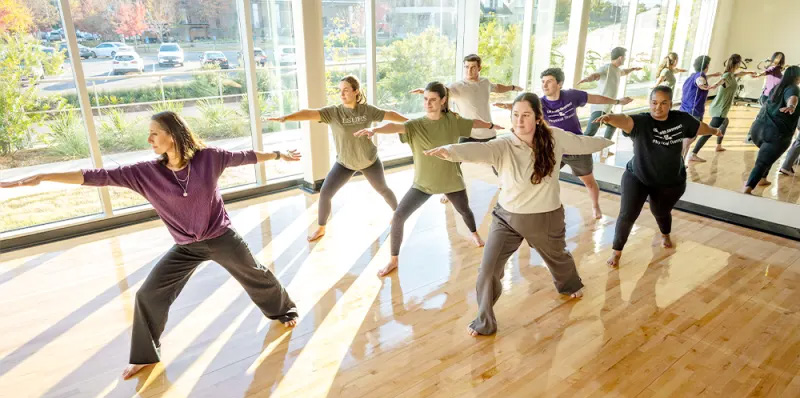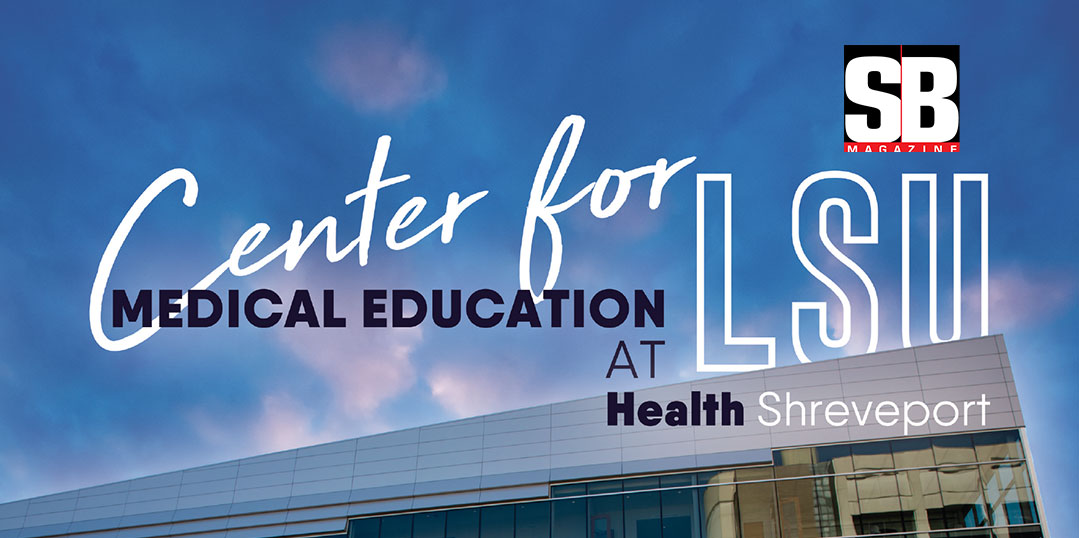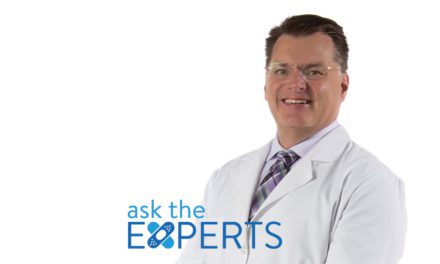The establishment of LSU Health Shreveport’s Center for Medical Education can be traced back to its inception as a bold investment in sustainable economic growth, the delivery of modern education, and improving the overall health of North Louisiana. This new $79 million facility will be instrumental in accelerating the educational growth necessary to address the healthcare workforce shortage.
At the recent unveiling, Governor Edwards took the stage to elaborate on the importance of this milestone. “An investment in Louisiana’s healthcare and scientific workforce is a win for our entire state, which is why the opening of the Center of Medical Education at LSU Health Shreveport is such an important achievement,” said Gov. Edwards. “This state-of-the-art facility gives Shreveport every advantage to equitably compete for top-tier students from both near and far. Given LSU Health Shreveport’s long and impressive record of retaining graduates in Louisiana and providing care for underserved and rural areas, I am confident that this center will prove beneficial in the immediate future and for decades to come.”
With 70,000 square feet dedicated to educational spaces and almost 17,000 square feet of state-of-the-art wellness offerings, the facility will serve as a symbol of LSU Health Shreveport’s commitment to excellence in medical education to include the mental and physical wellness of students. The center is equally focused on biomedical research aimed at improving health outcomes through an expanded research infrastructure focused on training, treating, and combatting current and future viral diseases.
The Center for Medical Education features state-of-the-art classrooms and laboratories designed to facilitate a modern, team-based approach to medical education. It is the first new building on the LSUHS campus in over 15 years. The Center for Medical Education is strategically located adjacent to the three professional schools, making it a hub for training the next generation of healthcare professionals. In addition to classrooms and laboratories, the Center for Medical Education houses simulation and skills training labs to provide students with comprehensive, hands-on training experiences.
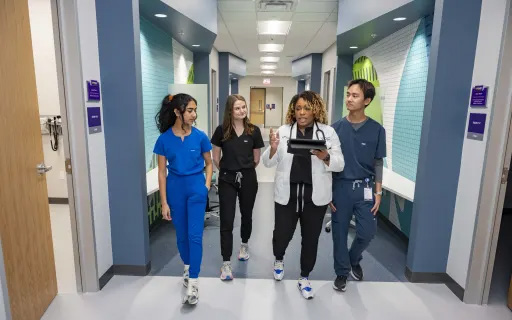
The Technical Skills Lab features computer-based and virtual reality simulators, including a Fundamentals of Laparoscopic Surgery (FLS) training facility. The Simulation Lab consists of seven full-service simulation rooms, including a simulation hospital ward, emergency response/cardiology, adult, pediatric, and neonatal units. The Clinical Skills Center offers extensive training through standardized patients, who realistically portray various patient scenarios, enabling students to practice their diagnostic and communication skills and preparing them to become confident and competent practitioners.
The Center for Medical Education is also home to a fitness center and wellness space, encompassing over 25,000 square feet, where students and staff can maintain their physical and mental health. This includes meditation rooms, cardio and fitness studios, and a multipurpose gymnasium. Additionally, the campus features a teaching kitchen, which serves as an educational space for healthy cooking techniques and overall nutritional wellness.
Senator Bill Cassidy spearheaded the effort that led to a $7 million Health Resources and Services Administration grant that contributed to the construction of the Center for Emerging Viral Threats (CEVT) research facility. The 11,780-square-foot CEVT will act as a training ground for students, physicians, and scientists and will consist of a Biosafety Level 3 (BSL-3) laboratory and a Biosafety Level 2 (BSL-2) laboratory with an additional lab space enabling both advanced research on viral pathogens and molecular testing for different viruses serving public health needs. The BSL-3 Lab will be the first of this magnitude on the LSU Health Shreveport campus and in North Louisiana, enabling the institution’s world-class researchers to study important emerging human pathogens further and fortify the university’s position to address future pandemics quickly.
The development of the Center for Medical Education exemplifies a commitment to collaboration as funding was provided by federal, state, and local governments combined with private sector support. More than 400 donors, including gifts from Ochsner LSU Health Shreveport and Ochsner Health totaling $15.5 million, as well as $1 million each from both the City of Shreveport and Caddo Parish Commission, contributed to the completion of this project. “When public and private funders join forces, incredible achievements can occur. This transformational building is a testament to the commitment of our federal, state, and local elected leaders and community supporters to LSU Health Shreveport’s future. It is with great pride that we could come together with our closest supporters to celebrate this achievement. We are thankful for every dollar given to this project because every dollar mattered,” stated Kevin Flood, President, and CEO of the LSU Health Sciences Foundation in Shreveport.
The innovative research and development conducted at LSU Health Shreveport have led to numerous breakthroughs and contributions to the medical field. These advancements not only improve the well-being of the region but also have a lasting impact on the broader medical community. As a part of LSU Health Shreveport’s primary mission to teach, heal, and discover, the Center for Medical Education is dedicated to providing a robust training environment for students and fellows. By fostering a culture of learning and innovation, the Center for Medical Education is shaping the future of healthcare and science.
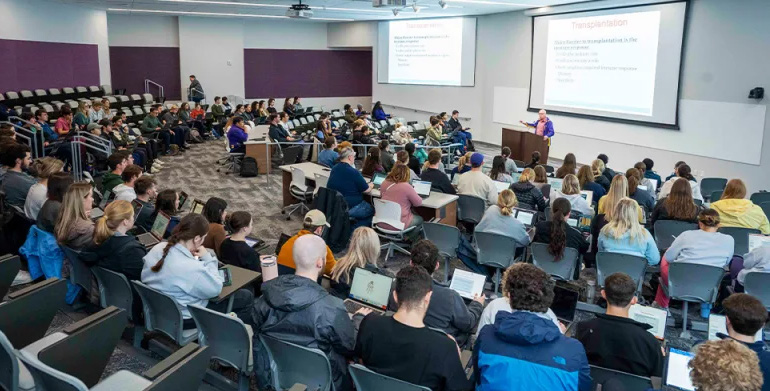
Fifty years ago, LSU Medical School graduated its first class of medical students. It is fitting that this beautiful structure, the Center for Medical Education, will become a symbol of Louisiana’s commitment to supporting the advancement of medical education in North Louisiana as well as maintaining top-tier physicians in our region and state. Since the inception of School of Medicine, primary care and family medicine has been a focus of the institution. After fifty years approximately 50% of graduates match into primary care residencies. The LSUHS School of Medicine also boasts being in the top 23% for students remaining in the state to practice medicine.
Another essential aspect of the high-quality education provided at LSU Health Shreveport is its highly experienced and knowledgeable professionals. With more than 500 clinical and research faculty members, LSU Health Shreveport boasts a diverse and dedicated team of educators who play a key role in the institution’s mission of healing, teaching, and discovery. Many of these faculty members are nationally and internationally renowned clinicians and researchers, often recruited from major institutions across the country. This strong emphasis on recruiting top-tier educators ensures that students at LSU Health Shreveport receive an unparalleled education grounded in the latest advancements in medical research and practice.
The student experience is also prioritized at LSU Health Shreveport. Extracurricular activities and organizations promoting leadership, academic training, and service play an essential role in shaping student life. With a variety of organizations and interest groups on campus, students are offered a wide range of engagement opportunities. For example, academic societies provide mentoring and coaching to medical students throughout their four years of study, and medical specialty interest groups provide opportunities for students to learn more about the fields they are interested in pursuing. By participating in these activities, students can develop valuable skills, receive guidance for their future careers as physicians, and forge connections with peers and faculty.
Another asset to the student experience is the number of LSU Health Shreveport alumni who remain in the community. Networking and mentorship are advantageous components of clinical rotations and matching with residency programs. With over 5,000 residents and fellows having trained at the institution, many remaining in Northwest Louisiana, there is a vast network of professionals who can provide guidance, support, and opportunities for educational development. Furthermore, a foundation in research activities not only supports career growth but also positions students for success in their chosen medical specialties. By engaging with mentors and participating in research or other training opportunities, students can develop the necessary connections and skills to excel in their future endeavors within the healthcare industry.
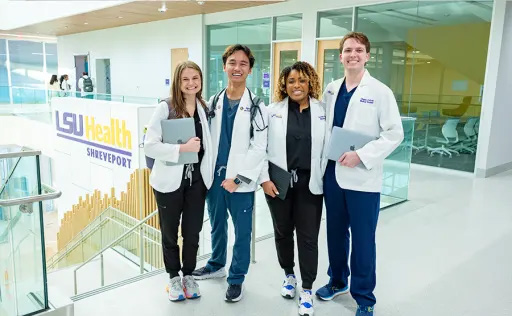
Students at LSU Health Shreveport are often involved in the community through service involving health education or patient support initiatives. These opportunities aim to provide the community with supportive resources such as health screenings, educational flyers, support groups, etc. Students and student groups participate in local health fairs and other community markets and provide resources and support for those who are present. Additionally, students at LSU Health Shreveport hold annual events for groups in need of support in our community, such as a weekly walking group and annual fundraiser for local cancer patients and survivors and an annual week-long summer camp for children with disabilities.
In addition to education and student experiences, LSU Health Shreveport offers a range of programs and workshops designed to support the ongoing professional development of practicing physicians. Through regularly scheduled seminars, grand rounds, etc. the Continuing Medical Education (CME) program facilitates lifelong learning for physicians, helping them stay current with advances in medical knowledge and best practices. These educational events often feature expert speakers from various medical specialties who share their knowledge and expertise through lectures and hands-on training. By participating in these programs, physicians can enhance their critical thinking, problem-solving, and scientific knowledge, which are essential skills for delivering high-quality patient care.
Over the years, LSU Health Shreveport has contributed a positive economic impact to North Louisiana. As northwest Louisiana’s sixth largest employer, the institution contributes over $595 million to the region each year in addition to the $2.4 billion contributed by LSU Health Shreveport alumni practicing in North Louisiana. The Center for Medical Education will allow LSU Health Shreveport to grow and continue to attract high-quality students and faculty. The past fifty years of education have proved to be positive for the region, state, and beyond, and the next fifty years are expected to do the same. The Center for Medical Education was essential in continuing the proud legacy of innovation and excellence at LSU Health Shreveport.
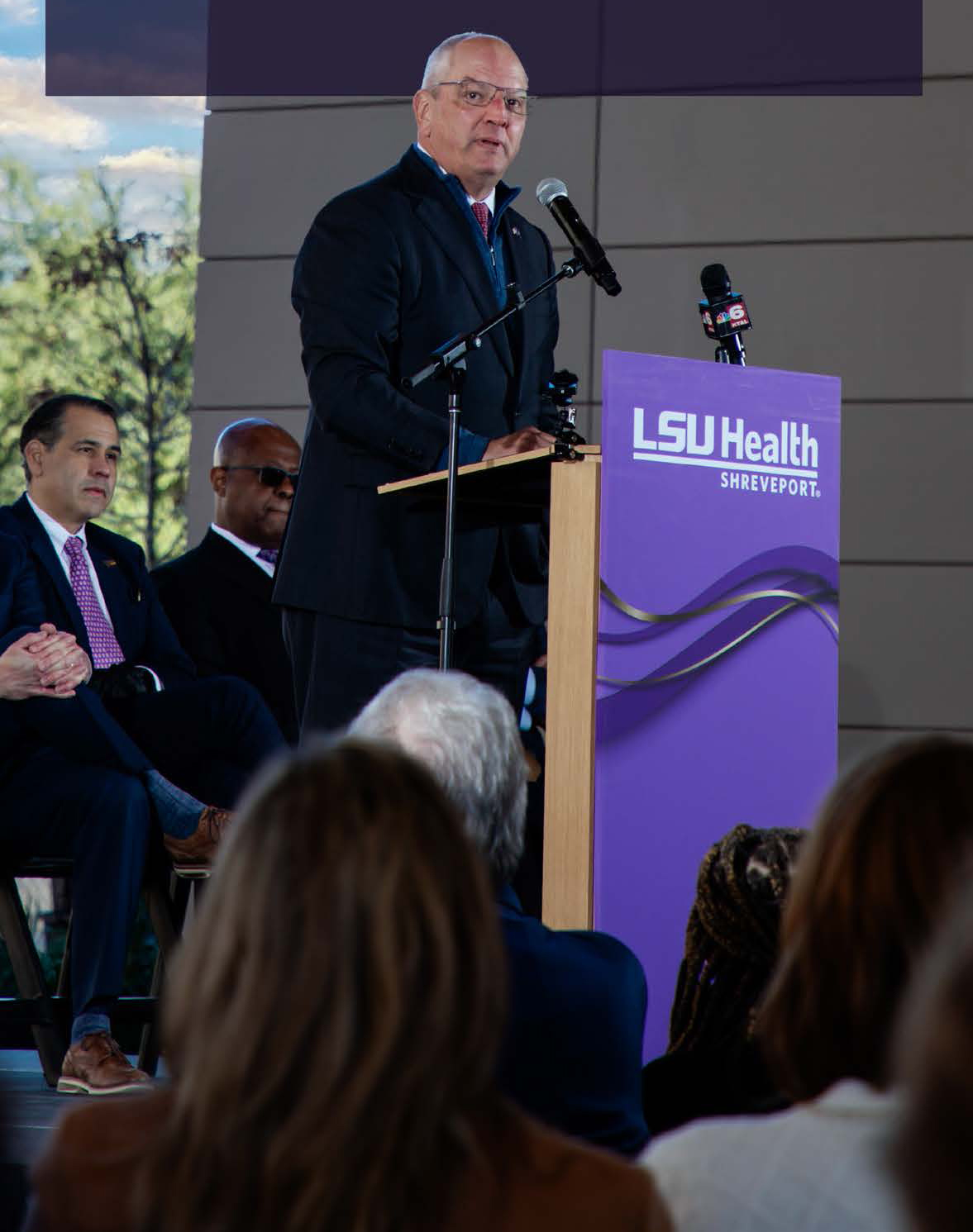
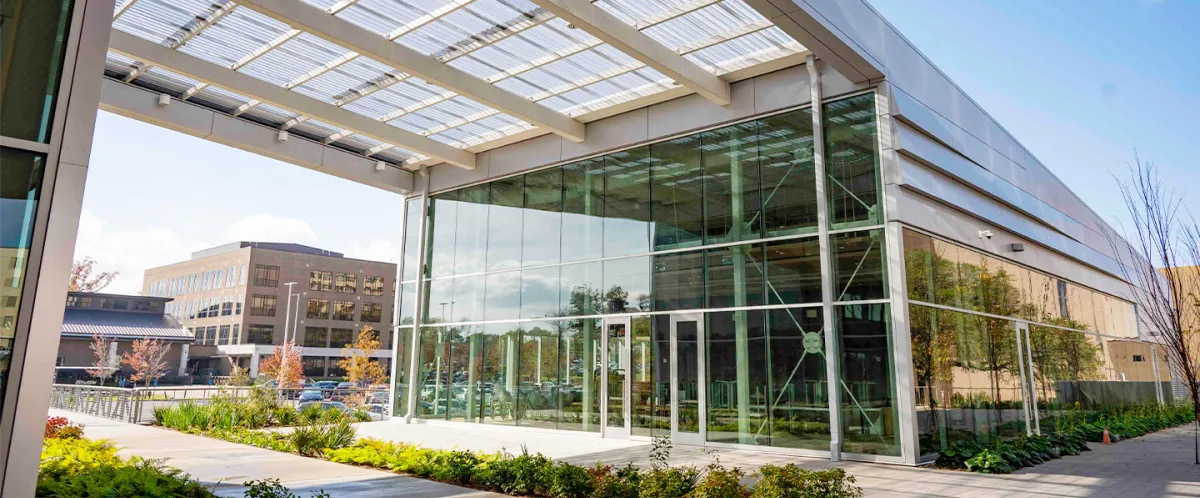
The Center for Medical Education at LSU Health Shreveport offers a range of programs and workshops designed to support the ongoing professional development of practicing physicians. Through monthly conferences and regularly scheduled series, such as grand rounds, the Continuing Medical Education (CME) program facilitates lifelong learning for physicians, helping them stay current with advances in medical knowledge and best practices. These educational events often feature expert speakers from various medical specialties who share their knowledge and expertise through lectures and hands-on training. By participating in these programs, physicians can enhance their critical thinking, problem-solving, and scientific knowledge, which are essential skills for delivering high-quality patient care. A new $2.5 million gift from W. Clinton “Bubba” Rasberry, Jr. was announced at the unveiling. The gift will establish the Rasberry Family Endowed Lecture Series, which will be hosted in the building auditorium. In recognition of this gift, it was announced that the auditorium will be named the W. Clinton Rasberry Jr. Auditorium.
In addition to workshops and conferences, the Center for Medical Education at LSU Health Shreveport provides certification and recertification courses for physicians seeking to maintain or expand their clinical competencies. These courses cover a wide range of topics, including cardiopulmonary science, medical laboratory science, physician assistant, Communication disorders, Occupational therapy, And physical therapy. Furthermore, all Louisiana licensed physicians who prescribe controlled dangerous substances must complete a 3-hour CME course to meet the state’s requirements. The Center for Medical Education ensures that these courses are accredited by the Accreditation Council for Continuing Medical Education (ACCME), ensuring that participants receive high-quality, evidence-based instruction.
